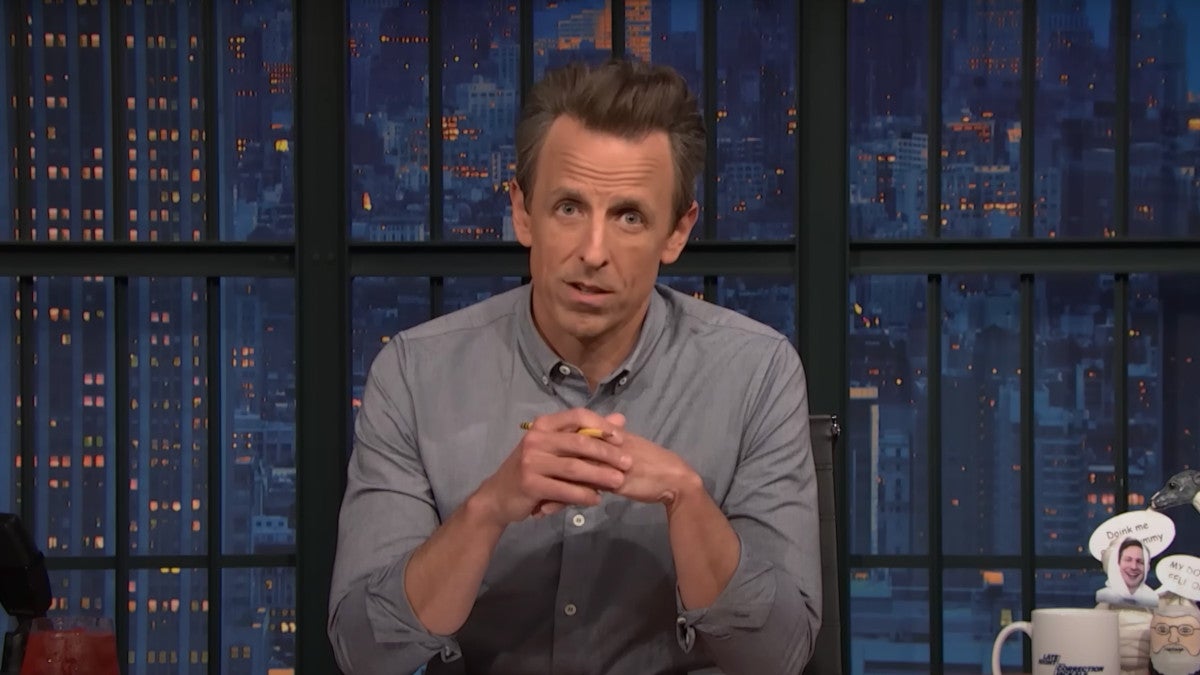
With the current Writers Guild contract set to expire at 11:59 p.m. on May 1 and the WGA and Alliance of Motion Picture & Television Producers still in the midst of negotiations for a new contract, “Late Night” host Seth Meyers spoke out in solidarity with the WGA and acknowledged the potential of his NBC series going dark should a strike occur.
“I am deeply proud of the fact that I get to be a professional writer and I bring this up because as of Monday at midnight, there might be a writer’s strike,” Meyers said on Friday’s episode of his traditionally goofy “Late Night” YouTube program “Corrections.”
“If a writer’s strike happens, that would shut down production on a great many shows, and I’ve been through this before in 2007, 2008. There was a very long strike when I was working at ‘SNL,’ and it was really miserable, and it doesn’t just affect the writers, it affects all the incredible non-writing staff on these shows, and it would really be a miserable thing for people to have to go through, especially considering we’re on the heels of that awful pandemic that affected obviously not just showbusiness but all of us.”
Meyers expressed his gratitude for the negotiators at the table and threw his full support behind the WGA.
“I’m incredibly grateful that there are negotiators for both sides sitting and talking. I’m incredibly hopeful that they can come to an agreement,” Meyers said. “I also feel very strongly that what the writers are asking for is not unreasonable. And as a proud member of the guild, I’m very grateful that there is an organization that looks out for the best interests of writers.”
The host concluded the earnest message by saying that if a strike does occur, it will not be done lightly.
“If don’t see me here next week, know that it is something that is not done lightly, and that I will be heartbroken to miss you as well.”
Meyers held up a card that read “Fingers Crossed” and said, “See me when you see me.”
The WGA voted overwhelmingly to authorize a strike should a deal not come together, as writers are fighting for contracts that better compensate them in the age of streaming – and offer protections as AI looms on the horizon.















